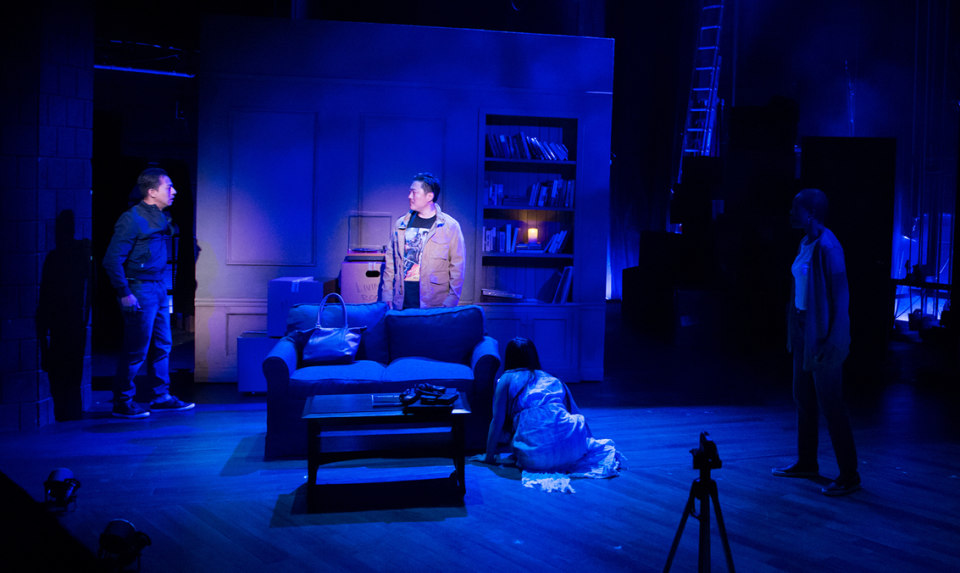Descent 3 Ost
четверг 16 апреля admin 73
 Description Conquer the castle in Rogue Legacy for Nintendo Switch. The challenging side-scrolling platforming and action-packed combat provide hours of fun, and the Rogue-LITE mechanics provide a unique challenge every time you play. Rogue Legacy is a genealogical rogue-'LITE' where anyone can be a hero. Each time you die, your child will succeed you. Every child is unique. One child might be colorblind, another might have. Rogue Legacy is an indelible game to play on the Switch. It has a very fast-paced, pick-and-play cycle to the action,which is perfect for experiencing on the go -and the seemingly endless puns and dad-jokes will make any cynical and tired gamer smirk warmly. Rogue Legacy is a hard game; it’s practically a given that you’re going to lose some (or, y’know, a lot) of health in every room, and once your character goes down, they’re dead forever and the cycle repeats with you choosing from another three children.
Description Conquer the castle in Rogue Legacy for Nintendo Switch. The challenging side-scrolling platforming and action-packed combat provide hours of fun, and the Rogue-LITE mechanics provide a unique challenge every time you play. Rogue Legacy is a genealogical rogue-'LITE' where anyone can be a hero. Each time you die, your child will succeed you. Every child is unique. One child might be colorblind, another might have. Rogue Legacy is an indelible game to play on the Switch. It has a very fast-paced, pick-and-play cycle to the action,which is perfect for experiencing on the go -and the seemingly endless puns and dad-jokes will make any cynical and tired gamer smirk warmly. Rogue Legacy is a hard game; it’s practically a given that you’re going to lose some (or, y’know, a lot) of health in every room, and once your character goes down, they’re dead forever and the cycle repeats with you choosing from another three children.
Discord Server:Here are resources for acquiring and playing the Descent games.Descent 1 & 2:. Have your old floppies and CD-ROMs? Use, They ported the engine to Windows, OSX and Linux! They also added enhancements such as OpenGL support and TCP/IP-UDP multiplayer capabilities.Offical Digital Releases:.Descent 1.Descent 2.Source Code for andDescent 3.Steam (Offical Digital Release):.GOG.com (Includes Mercenaries Expansion):.Updates:Descent Freespace: The Great War. Steam(Offical Digital Release):.
GOG.com(Battle Pack Edition, includes Silent Threat expansion):Freespace 2 This game was released for free in 2006, but now is Payware again. Steam(Offical Digital Release):. GOG.com:20171126.
Mar 15, 2009 The 'in-game' soundtrack is taken directly from the game music. The tracks are very short, as they are meant to be looped. The 'original' soundtrack is based on the in-game soundtrack, but remixed to be full-length songs instead instead short loops (some sound effects from the game get thrown in here and there too).
What’s your most persistent earworm – the music you hear more than anything else in your life?Your favourite symphony? Probably not – but if, like me, you’re an enthusiastic but happily incompetent player of video games, you’ll be hearing the tunes and sound effects of game music on a seemingly infinite loop.Music like the “game over” chiptune of doom as Mario tumbles to his demise – or the more benign (but nonetheless terminal) musical descent that marks yet another failed battle in. Or any of the brutal character deaths in games from Metroid to Mega Man, Dragon Quest to Final Fantasy. I’ve joyfully failed, countless times, in all of them.Video games prove the veracity of that Samuel Beckett aphorism as completely as any other human activity: “Try again.
Fail better.” But players need some inspiration to feel purpose in attempting the same level, over and over again. And that’s where the motivational power of gaming music comes in. The sounds and scores of the last 40 years tell the story of a new and evolving genre that has opened up possibilities for what music can doThe development of video game music is partly a story of changing technology. In, I met two of the inspirational pioneers of early game music in Japan, Manami Matsumae and Yoko Shimamura. Things have changed. In the 1990s, consoles grew in power and capacity so they could accommodate large-scale synthesised scores with symphonic power and sweep, like Nobuo Uematsu’s epic soundtracks for the Final Fantasy series. And by the turn of the 21st century, consoles could cope with samples and recordings of orchestral instruments as well as electronics, so that video game composers could write music on as ambitious a scale as any Hollywood film, from Halo to Assassin’s Creed – or Kristofer Maddigan’s music for Cuphead, a delicious 1930s-style jazz and cartoon-music confection that brings the game’s visuals, based on early animation, to surreally vivid life.
By the turn of the 21st century, video game composers could write music on as ambitious a scale as any Hollywood filmBut the evolution of video game music isn’t just to do with improved technology. Another significant development is the creation of a new kind of interactive art-form, in which the score responds to what we do as players.An especially resonant example is, in which no two players experience the same music. Not only are parts of the score cued at different times, according to the player’s decisions, but at some places in the game the music generates itself. This effectively means that the player’s actions determine the sequence of sounds they hear: the player becomes the composer.
:format(jpeg):mode_rgb():quality(40)/discogs-images/R-3369127-1327669422.jpeg.jpg)
